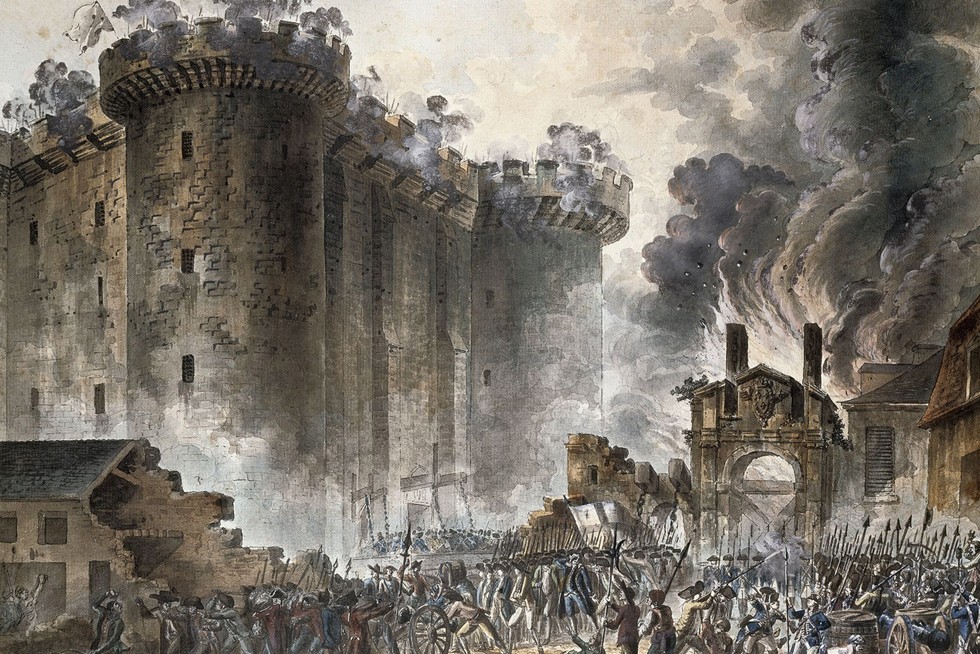Let’s travel through time to see events that changed the world.
Introduction
Modern history is full of moments that changed the course of humanity. These key turning points have impacted how we live, think, and interact with the world.

Credit: www.boye-co.com
The Invention of the Printing Press (1440)
Imagine a world where books were rare and only a few people could read them. That changed when Johannes Gutenberg invented the printing press. It meant that books could be made in large numbers. Many people could now learn from books. This invention started a wave of knowledge all over the world.
The American Revolution (1775-1783)
The American Revolution was not just a war. It was a fight for independence. It showed the world that a new country could be formed by the people and for the people. A new government was born that promised freedom and rights to its citizens.
The French Revolution (1789-1799)
The French Revolution was a big change in how people thought about power. The old leaders were removed and new ideas spread. This event showed people could rule themselves. It sparked many more changes in Europe and all over the world. People wanted their voices to be heard and to have rights.
Industrial Revolution (1760-1840)
The Industrial Revolution was a time when big machines were built. These machines changed how people worked and lived. Goods could be made faster and cheaper. This led to cities growing and people moving to find work in factories. Our world became more connected and goods traveled farther.

Credit: www.kobo.com
World War I (1914-1918)
World War I was called “The Great War.” It was a war that involved many countries. The world saw how deadly wars could be with new weapons and machines. The end of the war brought new country borders in Europe. It also led to World War II because of the hard times it caused.
World War II (1939-1945)
World War II was a huge war that touched every part of the world. It ended with new superpowers: the United States and the Soviet Union. Countries in Europe and Asia had to rebuild. The United Nations was formed to keep peace. We also saw the start of the atomic age.
The Space Race (1957-1969)
The Space Race was a competition between the United States and the Soviet Union to explore space. It was exciting to see humans travel beyond our planet. The Space Race led to new technology that we use every day. It made us think that humans could do almost anything.
The Fall of the Berlin Wall (1989)
The Berlin Wall was a wall that separated East and West Berlin. When it came down, it was a symbol of freedom and the end of a divided Europe. Countries in Eastern Europe began to join the rest of the world. People could now travel and share ideas more freely.
The Internet Revolution (1990s)
The Internet changed everything. People could now connect with others all across the globe instantly. Information could be shared at the click of a button. Shopping, learning, and talking to friends became different with the Internet. It has become a big part of our lives.
Timeline of Key Turning Points
| Event | Year | Significance |
|---|---|---|
| Printing Press Invented | 1440 | Made books widely available |
| American Revolution | 1775-1783 | US Independence, democracy idea |
| French Revolution | 1789-1799 | End of monarchy, rise of republics |
| Industrial Revolution | 1760-1840 | Mass production, urbanization |
| World War I | 1914-1918 | Global conflict, changed maps |
| World War II | 1939-1945 | New superpowers, UN founded |
| Space Race | 1957-1969 | Advancements in technology and space |
| Fall of Berlin Wall | 1989 | End of Cold War, Europe united |
| Internet Revolution | 1990s | Global communication transformed |
Frequently Asked Questions On Key Turning Points In Modern History: Epochal Events Unveiled
What Triggered The Industrial Revolution?
The Industrial Revolution began due to a combination of technological innovation and economic necessity in 18th century Britain, sparking massive social and industrial change globally.
How Did Wwii Reshape The World?
World War II resulted in the decline of colonial empires, the rise of the United States and the Soviet Union as superpowers, and the inception of the United Nations.
What Caused The Fall Of The Berlin Wall?
The fall of the Berlin Wall in 1989 was precipitated by political reforms, increasing East German emigration pressures, and a peaceful revolution by the East German people.
How Did The Internet Revolutionize Information Access?
The internet revolutionized information access by enabling instant, global connectivity and an unprecedented sharing of knowledge across diverse digital platforms.
Conclusion
Modern history is filled with amazing changes. These key turning points have made the world what it is today. They show us how brave and smart humans can be. They remind us that we can work together to do great things. Every turning point started with people who wanted to make a change.
Guest Author Sakhawat-Shuvo wrote and edited this Article based on his best knowledge and understanding. These opinions and remarks are not endorsed or guaranteed by epichistoria.com or EpicHistoria. The Epic Historia does not guarantee this article’s content. Readers should verify and use their judgment before trusting the content. Also, the Images used in this Article are the copyright of their Respective Owners. Please use our Comment Box or Contact Us form to report this content. This information is not accountable for losses, injuries, or damages.


